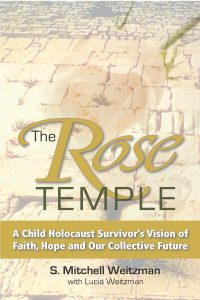Have you ever wondered about the headlines on the day that carries the news of your passing? If you could see them, would you be uplifted? Surprised? Apathetic? Upset?
I thought about this last week when I read The New York Times on Sunday, July 3, 2016. The paper ran a story about the passing of Elie Wiesel, Holocaust survivor, author, Nobel Peace Prize winner, activist, and humanitarian who worked tirelessly to make this a better world.
Would he have groaned to read the headline: “20 Killed in Bangladesh as ISIS Broadens Reach. It was another senseless loss of life in an era when senseless loss of life is all too common.
Despite his efforts to promote a better universe, Wiesel left us with a still much-troubled world where even the memory of the Holocaust is often forgotten or misappropriated. I wonder whether, in his final moments, he considered whether hope or despair lie in a future without him.
It is a question I grapple with as I launch a book about my mother’s transformation from child Holocaust survivor to spiritual messenger. The Rose Temple: A Child Holocaust Survivor’s Vision of Faith, Hope, and Our Collective Future is a work that juxtaposes history, spirituality, personal identity, and healing the world.
If the latter strikes a clichéd, ineffectual tone—and I must admit that it can—the journey I undertook in writing the book empowered me to believe otherwise. The indescribable heroism demonstrated by the Polish Catholic couple who saved my mother is just one of many beacons of hope that exist whenever and wherever savagery is found.
Despair at reading today’s headlines should not, therefore, vanquish the vision and hope of what our world has the potential to be. My mother, despite having every reason to feel otherwise, holds closely to this conviction.
Of Wiesel, Michael Berenbaum (former Director of the United States Holocaust Research Institute at the U.S. Holocaust Memorial Museum) wrote in The Forward, “more than any human being I know, he was responsible for changing the status of Holocaust survivors from victims and refugees to witnesses with a moral mission not only to remember the past but to transform the future.”
The headlines written after the day Wiesel died, and the many despairing headlines written since he died, capture a cruel moment in time. Let’s hope that the impact Elie Wiesel has made on the world and the missions of transformation he encouraged are timeless.
Through the voice of a woman who, in The Rose Temple, infuses a feminine sensibility to the struggle to overcome hate and division, we honor and continue Wiesel’s legacy.



